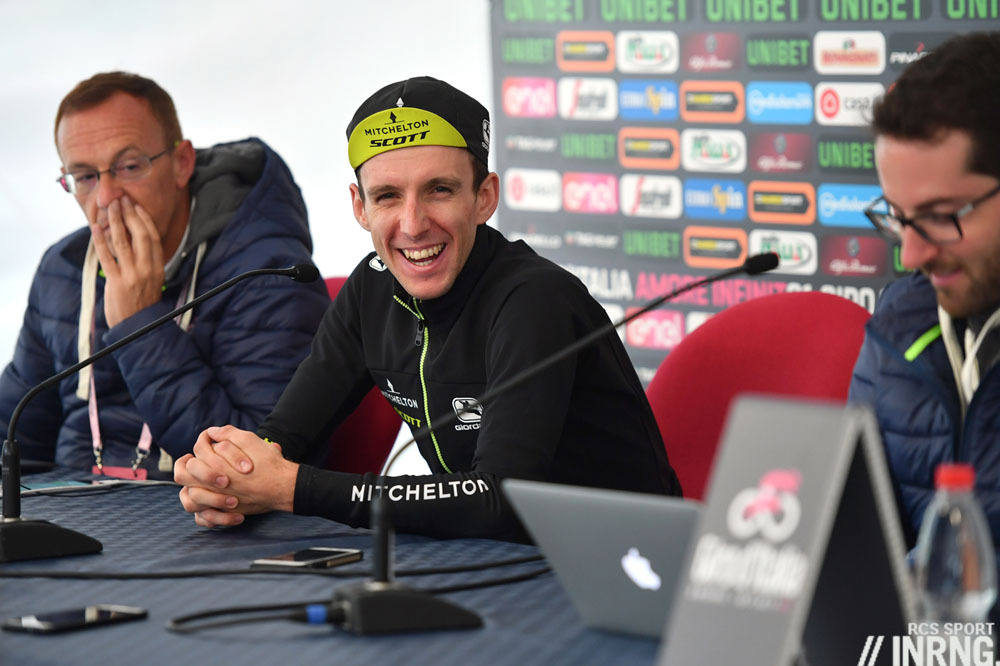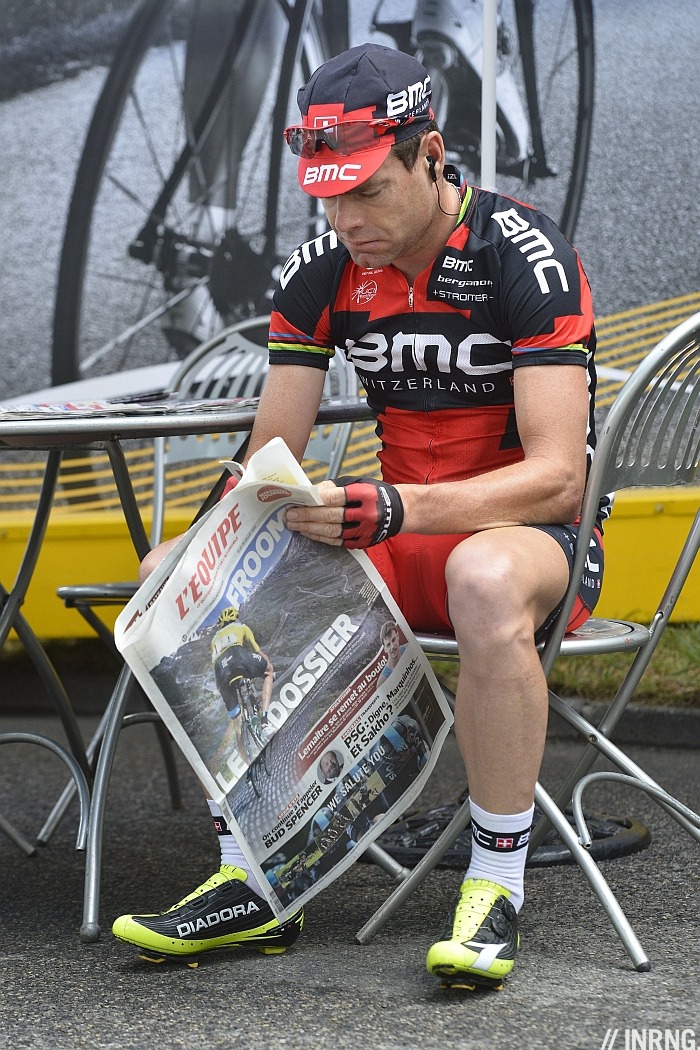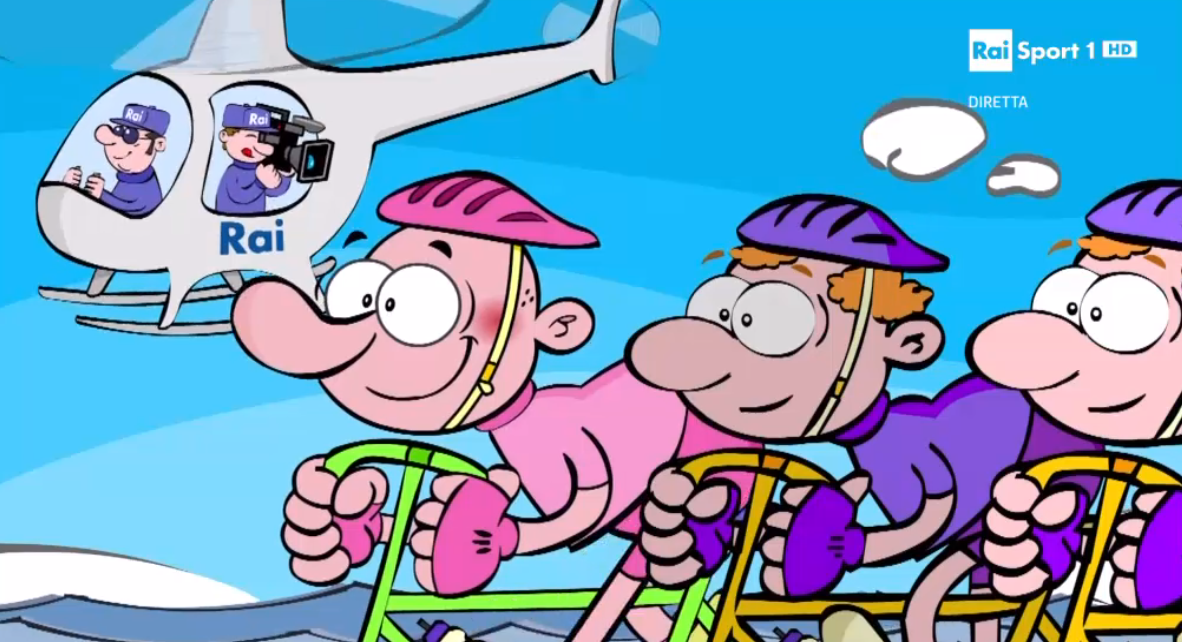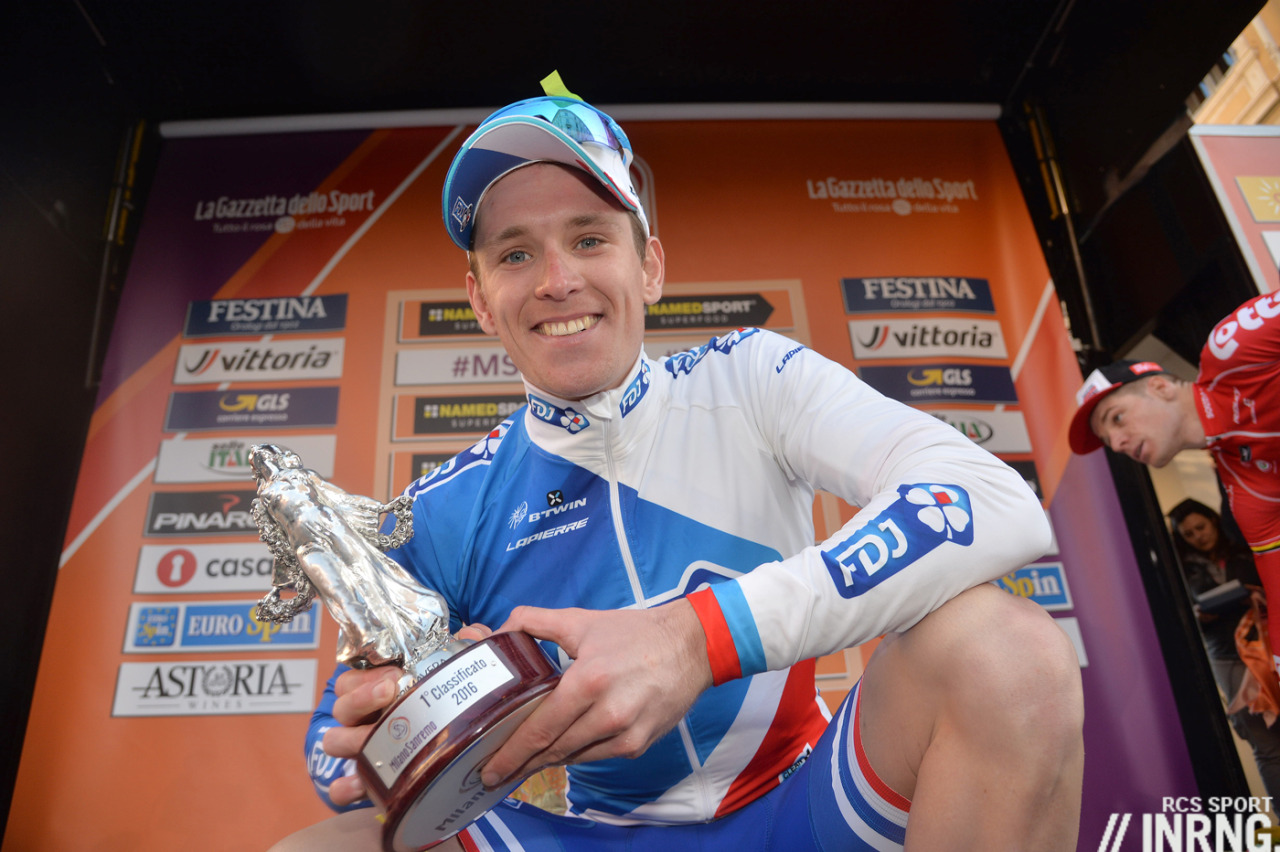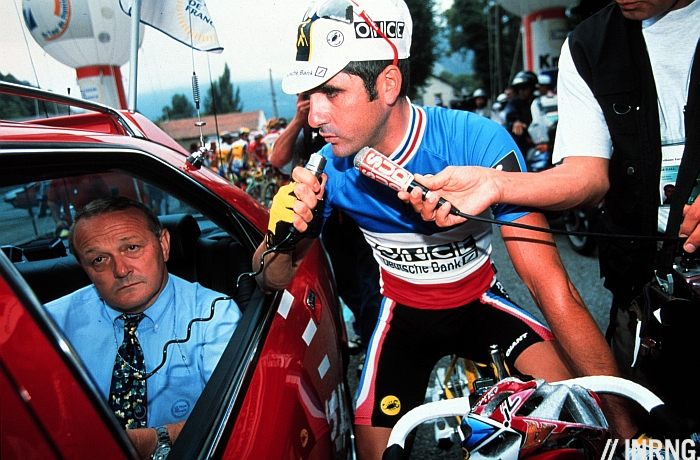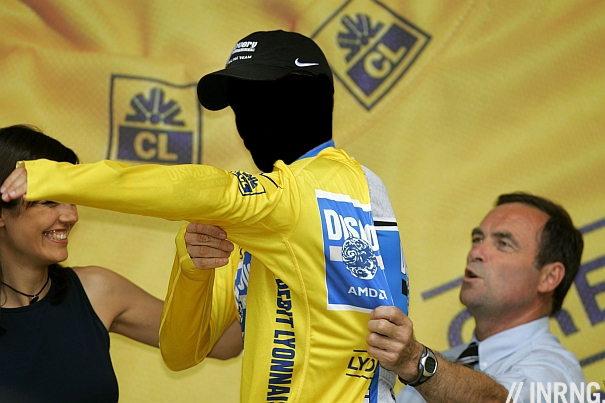Simon Yates is having to eat some of words these days after telling Rouleur magazine that his rivals ought to be “shitting themselves” at the prospect of racing against him. His confidence turned out to be excessive but sport relies on rivalry and entertainment, and cycling could do with some more fighting talk to get the public interested. It’s not easy, especially as bike racing relies on cooperating with your enemy in order to beat them.
Media
Reading L’Equipe
If you’re able to catch the Tour de France live on TV most days, chances are this is only part of your experience of the race during July. There’s lots more to read about and listen to and French sports newspaper L’Equipe is required reading for many on the race.
A Day Watching The Giro on RAI
Having read La Gazzetta Dello Sport last week, time to review how most Italians follow the Giro: on TV via the national broadcaster RAI. As well as the live race coverage there’s plenty more in and around the race to watch. What it’s like to spend a day watching this?
Reading La Gazzetta Dello Sport
Do you have a morning routine? With the Giro d’Italia on there’s nothing better than starting the day with some Italian coffee and La Gazzzetta Dello Sport, the official newspaper of the Giro. Here’s a look at the newspaper, it’s history and what it’s like to read.
The Cipressa Conspiracy Theories
Did Arnaud Démare cheat his way to Sanremo? Even asking the question is explosive as it’s a rhetorical device, a loaded question. The Milan-Sanremo winner has seen his win tarnished by allegations first aired in La Gazzetta Dello Sport from two riders that he was driven up the climb of the Cipressa in order to get back to the peloton after his crash. So far there’s no proof but the story is interesting for the way it shows us how internet polemics and conspiracy theories work.
The Imperfect Past of Laurent Jalabert
L’Equipe reports Laurent Jalabert tested positive for EPO after tests were done on samples collected from the 1998 Tour de France. Like many a scandal it’s not the evil deed but the cover-up that causes controversy. A pro cyclist from late 1990s using EPO? Big deal. But a contemporary media figure stuck in a tangled web of half-truths and denials? Awkward.
But look beyond the headlines and the promise of sample storage is an added deterrent. Whilst many in France shoot the messenger, being able to test samples from the past is an advance, the only problem is that the test results needed an enquiry by the French senate to link names to the positive sample. More names are coming.
Watching The Races
We got confirmation today that the free video stream for the Giro will not be available for this year’s edition. It leaves fans looking for new channels and ways to watch the race.
It’s also symptomatic of a structural problem in the sport where different races are on different channels. Even the most loyal fan is left struggling with broadcast schedules, TV subscriptions and more. All this is hampering efforts to build the sport.
Leaked UCI Documents
According to leaked memos seen by Belgian newspaper Het Nieuwsblad Lance Armstrong tested positive four times in the 1999 Tour de France. Sounds dramatic, no?
Only if parts of the media are reporting this as news (here, here or here) it turns out the UCI mentioned all of this last year in a press release. But whilst news of Armstrong’s positive test is stale as a baguette baked months ago, there’s some fresh insight because the memos appear to show the UCI positioning itself to explain past actions. Rather than analysing what went wrong the memos appear to be trying to present excuses for significant lapses in the UCI’s anti-doping procedures.
The same with the leaked information about Armstrong’s 2001 Tour de Suisse EPO tests. Whilst the media (ici) says there was no “cover-up” of a positive test there are still big questions that have yet to be answered.
The Dark Side of the Moon
1969 saw Armstrong, Collins and Aldrin land the Apollo 11 spaceship on the moon and Eddy Merckx rode a Masi bike with Campagnolo Nuovo Record to win his first Tour de France. But just like the moon there’s a hidden side to everything.
Cycling’s dark side is doping. On the day the Apollo 11 mission was launched five riders were rousted for doping during the Tour de France. Antoine Blondin wrote in L’Equipe on 14 July 1969 that the cycling planet was like the hidden side of the the moon with “its valleys of trickery, craters of suspicion and seas of repression.”
The mysteries remain and doping continues to eclipse the sport at times. The video clip above grabbed by Cycling Inquisition shows Universal Sport’s Steve Schlanger and Todd Gogulski saying it’s “only fair” to ask if Nairo Quintana is doping after his win in the Tour of the Basque Country. Only it’s grossly unfair.
An Interview with Eurosport’s David Harmon
TV commentary is one of those jobs that everyone thinks is easy… until they try it. The next you watch a race try pressing mute and replacing the audio with your own commentary and see how you get on.
David Harmon is one of Eurosport’s commentators. If you watch cycling this year you’re bound to hear him at work, hopefully via full HD and clear audio but maybe via a pirate audio feed.
Here he talks about the job, how it’s changed, what it’s like to talk for six hours non-stop and more.

